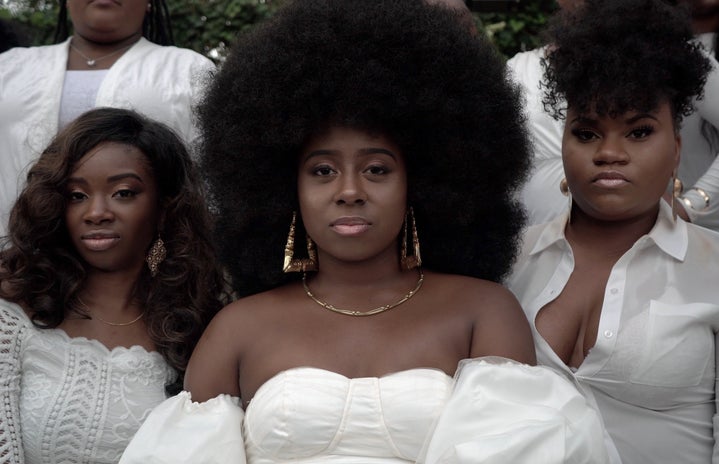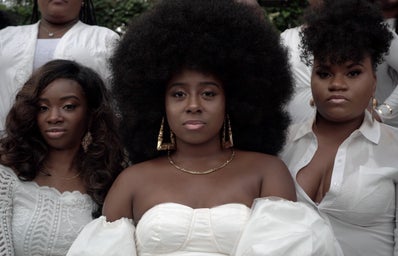In traditional American school systems, we learn about what I call “mainstream” American history. The curriculum focused on pivotal events and popular figures. This is not to say what is taught is not important, but it leaves a lot of room for glossing over smaller-scale events and people who contributed to the bigger picture. A famous term used in theater is, “There are no small parts, only small actors,” and in a broad historical sense, I interpret this term to mean there is always more than one person who contributed to a historical event or movement whether or not their lives are discussed in history courses. When it comes to Black women, there are so many who have made their mark on the development of America into what it is today. Here are 9 influential Black women you probably didn’t hear about in history class, but absolutely should know about.
- Philis Wheatley
-
Philis Wheatley is one of my very favorite historical figures. When I was younger, I learned about her from independently reading a book about her story. Not only was she influential to the women’s and civil rights movement, but she was influential in helping me to become interested and passionate about history, discovering stories of people who are often overlooked. Wheatley lived in Boston with the Wheatley family after being taken from her home in Western Africa and sold into slavery. While being enslaved, Philis learned how to read and write, becoming very talented at both. She went on to become the first African American to publish a book of poetry. She was so talented that merchants in Europe sought after her work to be published.
- Lucy Sessions
-
Lucy Sessions was the first African American woman to graduate and earn a degree from a college or university. She studied at Oberlin College in Oberlin, Ohio after fighting to be accepted into a university. At first, the dean denied her acceptance. However, she was accepted into Oberlin after proving she was a strong student. After the completion of her college studies, Sessions moved to the South to teach newly freed African American slaves after the end of the Civil War.
- Hattie McDaniel
-
Hattie McDaniel is best known for her role in the film Gone with the Wind, which tells the story of the American South during the Civil War. The film itself is iconic in terms of cinematography, regarded as the first American film to use color and remains as the highest-grossing film to date even after adjusted for inflation. McDaniel played “Mammy” in the movie, and she became the first Black woman to win an Oscar in the “Best Supporting Actress” category in 1940. McDaniel is credited in over 50 films and as a singer.
- Viola Davis
-
Continuing to make her mark and dominating the television landscape, Viola Davis became the first African American woman to win an Emmy for Best Actress in 2015. She won this award for her work in How to Get Away with Murder, which was more than well deserved. Her acceptance speech for the Emmy referenced a quote by Harriet Tubman. “In my mind, I see a line. And over that line, I see green fields and lovely flowers and beautiful white women with their arms stretched out to me over that line, but I can’t seem to get there no-how. I can’t seem to get over that line.” Davis continues to dominate the big screen, speaking out for equality and diversity in television.
- Misty Copeland
-
Misty Copeland embodies the idea of a strong woman who in the face of adversity worked harder to achieve her goals. At a young age, Copeland was told she was too tall to become a successful ballerina and that she would not be able to do what she was passionate about. Despite not receiving the most endorsement, Copeland went on to practice ballet and work towards her goals. She developed her own style of ballet which introduced athleticism into the art. For her talent and contributions to dance, Copeland became the first African American woman to be promoted in the American Ballet Theater. She continues to make her mark on the dance world.
- Jane Bolin
-
Jane Bolin was born in 1908 in New York and lived to be almost 100 years old! Bolin was an excellent student; she finished high school when she was in her mid-teens and began studying at Wellesley College at age 16. At the age of 20, Bolin graduated from college with recognition for being one of the top students in her graduating class. After completing her Bachelor’s degree, despite the hostilities she faced based on her race and gender, she continued her education at Yale Law School. In 1931, Bolin became the first African American woman to earn a law degree from Yale. After a successful beginning to her career, in 1939 when Bolin was 31, she became the first female African American judge. She served on the bench until age 70 after being reinstated as a judge several times.
- Daisy Bates
-
You may have learned about a group of students known as the Little Rock Nine while in high school. They were a group of students in Arkansas who were enrolled in a segregated high school. Their presence marked the fight for equality and the desegregation in the public school system. The Little Rock Nine group were mentored by Daisy Bates who used her home as a meeting place for the students. She worked with the NAACP to advance the civil rights movement and played a big role in gathering students to push for the desegregation of schools. Her home is now a historical landmark known for being a safe place where she made her mark on education.
- Dorothy Height
-
Dorothy Height was a civil rights activist who began her work at the age of 25. She not only fought for civil rights, but also for women’s rights and gender equality. She is best known for her work in getting people to view African American rights and women’s rights holistically. In 2004, she was awarded a Congressional Gold Medal for her never-ending fight to help people exercise their civil rights.
- Mary Mahoney
-
In today’s world, especially with COVID-19 on the rise, we all have infinite respect and appreciation for those who work in the healthcare field. Mary Mahoney paved the way for African American women today to be working in healthcare and saving lives. Mahoney was the first African American woman to graduate from an American School of Nursing in 1879. After her training, Mahoney chose to become a private nurse rather than a public nurse due to discrimination in the public setting. She was well known for being efficient, patient, and kind with her patients. In 1908, after being bullied and unwelcomed by white nurses in the American Nurses Association, Mahoney co-founded the National Association of Colored Graduate Nurses, helping to create a community for nurses of color. She fought for civil rights and spent her life helping others.
Women in history are extremely important to know and appreciate, especially those who had to face challenges other than their gender. The women featured above are among millions of women in history whose stories are not told in today’s history classes. The National Women’s History Museum is a great resource for more information on the mark that strong Black women have made on the world.



